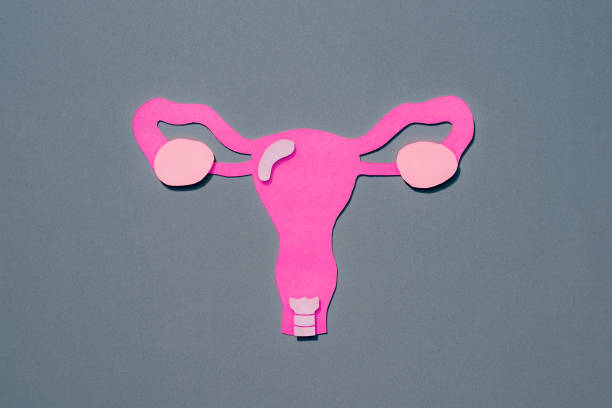The womb, also known as the uterus, is a remarkable organ that plays a crucial role in a woman’s reproductive system.
This pear-shaped muscular organ is where a fertilized egg implants and grows into a fetus during pregnancy.
The uterus is capable of expanding to accommodate the growing fetus and contracting to help push the baby out during childbirth.
Apart from its remarkable functions, there are many other reasons why keeping the womb healthy is important for overall reproductive health and general well-being.
A healthy uterus ensures successful conception, a healthy pregnancy, and a smooth delivery.
It also helps prevent a range of conditions such as endometriosis, fibroids, and polyps, which can cause pain, discomfort, and infertility.
Additionally, maintaining good womb health can help regulate menstrual cycles, reduce menstrual cramps
This article will share some practical tips for maintaining a healthy womb.
Practice Safe Sex
One of the most critical aspects of keeping your womb healthy is practicing safe sex.
Unprotected sex can lead to sexually transmitted infections (STIs) that can cause long-term damage to your reproductive system.
Always use condoms or other forms of contraception to protect yourself and your partner.
Get regular medical check-ups
Regular gynecological check-ups are crucial for maintaining a healthy womb.
Your gynecologist can perform a pelvic exam to check for any abnormalities, such as cysts, fibroids, or tumors, that can affect your reproductive health.
They can also perform a Pap smear to screen for cervical cancer, which is the fourth most common cancer among women worldwide.
Maintain a healthy weight
Although you might not know it, maintaining a healthy weight is critical for reproductive health.
Being overweight or obese can increase your risk of developing conditions such as polycystic ovary syndrome (PCOS), which can affect your fertility.
On the other hand, being underweight can cause irregular periods or even stop ovulation altogether.
Exercise regularly
Exercise is not only essential for maintaining a healthy weight but also for improving overall reproductive health.
Regular exercise can help regulate your menstrual cycle, reduce stress, and boost fertility.
Most days of the week, aim for at least 30 minutes of moderate-intensity exercise, such as brisk walking, cycling, or swimming.
Eat a healthy diet
A healthy diet is essential for maintaining a healthy womb. Make sure to include plenty of fruits, vegetables, whole grains, lean protein, and healthy fats in your diet.
Avoid processed foods, sugary drinks, and excessive alcohol consumption.
Maintaining a healthy diet can help regulate your menstrual cycle, improve fertility, and reduce the risk of developing reproductive health issues.
Manage stress
Stress can have a significant impact on your reproductive health. High stress levels can disrupt your menstrual cycle, reduce fertility, and increase the risk of developing reproductive health issues such as PCOS or endometriosis.
Take time to manage your stress through practices such as yoga, meditation, or deep breathing exercises.
Avoid smoking and excessive alcohol consumption
Smoking and excessive alcohol consumption can have a detrimental effect on reproductive health.
Smoking can cause infertility, premature menopause, and ectopic pregnancies.
Excessive alcohol consumption can cause irregular periods and affect fertility. Avoid smoking altogether, and limit your alcohol consumption to no more than one drink per day.
Stay hydrated
Drinking enough water is essential for maintaining a healthy womb.
Make sure to drink at least eight glasses of water per day to keep your body hydrated and flush out toxins.
Dehydration can cause irregular periods and affect fertility.
Practice good menstrual hygiene
During menstruation, it’s important to change your pads or tampons regularly to prevent bacterial growth, which can lead to infections like bacterial vaginosis or urinary tract infections.
You should also wash your genital area with plain water after each use of the toilet and even after urination to remove any residual menstrual blood or discharge.
Conclusion
Maintaining a healthy womb is essential for female reproductive health. By practicing safe sex, getting regular check-ups, maintaining a healthy weight, exercising regularly, eating a balanced diet, managing stress, avoiding smoking and excessive alcohol consumption, practicing good menstrual hygiene, and staying hydrated, you can help ensure optimal reproductive health.
YOU SHOULD ALSO READ:
- 5 Important Things to Do After Childbirth
- List of Items Required During Delivery in Nigeria
- 5 Healthy Nigerian Foods for Pregnant Women
- Kegel Exercises For Women: A Beginner’s Guide
- 5 Things To Consider When Choosing A Hospital For Delivery In Nigeria
- 12 Nigerian Foods That Boost Breast milk Production
- 8 Healthy Nigerian Foods for Babies
- Cryptic Pregnancy In Nigeria: What You Should Know
- 5 Effective Exercises For Menstrual Cramps
- 7 Best Exercises for Pregnant Women
- 7 Fitness Tips for Busy Nigerian Moms
Collins Nwokolo is a human physiologist, writer and health enthusiast. He loves writing helpful articles on health and fitness, which he enjoys sharing with everyone.










